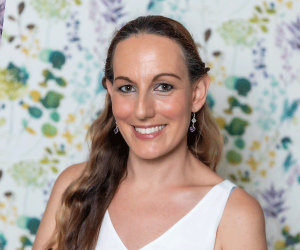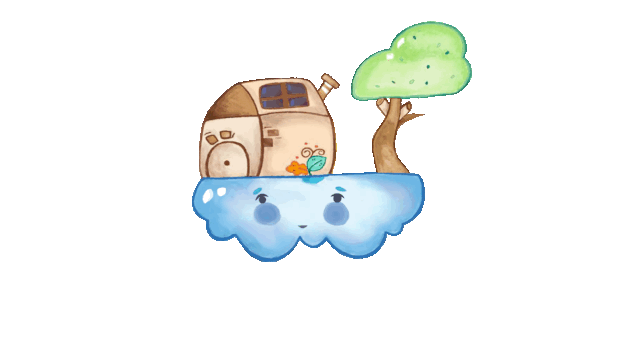
How Involved Should Parents Be In Their Child’s Therapy?
By Dr Kaya Beinke in collaboration with the Therapy House team

We understand the idea of bringing your child to their first psychology session may feel scary for both you as a parent and for your child, especially when you’re unsure about what to anticipate. We thought it may be helpful to know what you and your child can expect when you begin therapy by answering some commonly asked questions about how we work.
You have taken an amazing first step for your child’s wellbeing by seeking professional help for them and we hope that giving you some key information will support this process.
Who should attend the first session?
It’s really helpful when parents attend the initial consultation alone. This gives you a space to acquaint yourself with your child’s psychologist and allows you to openly discuss your concerns with them, free from reservations or worries. In this session, the psychologist will gather some information about the worries you have for your child, their strengths, your goals and some background information. In the second session, we can then spend the time getting to know your child and help them to feel safe in the therapy space. This will then allow them to feel comfortable to share their perspective and what they would like to learn from coming along to therapy. It is important to keep in mind though that our approach will differ somewhat depending on the age of your child.
What can my child and I expect when they first see their psychologist?
Younger children may express themselves through play or drawing, while older children can engage in more direct conversations about their thoughts and feelings. Regardless, establishing rapport and trust with the child is crucial, especially during the first session. The therapist will also ask the child about themselves, their interests, and their family. The goal is to understand the child’s perspective and begin establishing a connection. It’s important to acknowledge that therapy with children is a delicate task, regardless of a young person’s age, and it takes trust and time for the child to open up and bring their story to therapy. Without the child’s story, therapy is often not a successful path!
We understand that sometimes a child may feel overwhelmed meeting a new person by themselves so if needed, parents may also attend with the child for some or all of the child’s first session with their psychologist. Sometimes, it can even be helpful for therapists to do some activities together with a parent and child.
The psychologist may provide feedback to parents about their initial observations and impressions either at the end of this first session or before taking the child in during the next session.
Who decides on the goals for therapy?
Psychologists take a collaborative approach by involving the child and the parent in setting goals, depending on the child’s age. Very young children may not be able to express a clear goal, whereas a teenager may be more likely to have specific ideas and opinions. When both a child and parent can communicate about goals this helps to ensure goals are realistic, meaningful, and achievable. It also promotes a sense of ownership and commitment to the therapeutic process for both the parent and the child.
We recommend that before bringing your child to their session, you discuss your intention to involve them in the services. Depending on their age, you can initiate the conversation by saying something like, “I’ve noticed something, and I think we could use some help to make things better. Sometimes, it takes a while for you to get ready in the morning, and I want you to be part of finding a solution”.
What are some examples of therapy goals?
Depending on the child’s age, goals may revolve around improving their emotional and behavioural regulation, developing social skills, or addressing specific concerns (such as anxiety and depressive symptoms). For younger children, goals might involve improving behaviour or coping with changes in their environment, such as starting school or dealing with family changes. For teenagers, goals may be around coping with friendship concerns or peer pressure, personal identity development or difficulties with school engagement. It’s important to note that every child is unique, and the therapist’s approach will be tailored to the child’s personality, age, and specific needs.
Once goals have been set for intervention, psychologists consistently track and evaluate progress and may modify the treatment strategy according to how the child responds to the interventions. Whether the child participates independently or alongside their parents in this process will again depend on the child’s age and their capacity to provide consent for the psychologist to share information with parents and/or other healthcare providers or educators.
Who decides on any psychologist tests my child might need?
If the aim of psychological services is to assess your child for issues such as psychological, neurodevelopmental, or academic concerns, the psychologist will firstly describe how the assessment will work. In some cases, the psychologist might themselves suggest a psychological assessment if they believe it is needed to proceed with intervention. Before starting any assessments, the psychologist will talk to both the child (if they have capacity to provide consent) and their parents to discuss the following matters:
- The types and purpose of the assessments
- Assessment procedures and costs
- Recipients of psychological reports
Who is involved in ongoing therapy?
For children aged 7 and under, psychological intervention places a strong emphasis on actively involving parents. The primary goal is to equip parents with the necessary skills and strategies to support their child’s unique needs at home, ultimately helping the child move towards achieving the specified goals themselves.
Providing psychological services to children between the ages of 7 and 12 often involves a balanced approach with a mix of individual sessions with the child, individual sessions with parents and some dyadic parent-child sessions. Child sessions promote self-expression and skill-building; parent sessions help to empower caregivers with effective strategies to aid their child’s emotional and behavioural well-being, and dyadic session can help to foster improved parent-child communication and understanding.
Working with teens is slightly different – sessions will likely primarily involve the teen and provide them with a confidential space to express their thoughts, feelings, and concerns without the presence of their parents or guardians. This allows them to develop a trusting and strong therapeutic relationship with their psychologist. During these sessions, the specific issues of concern identified by the teen will be covered. The goal is to empower teens to build resilience, cope with life’s ups and downs, and develop essential life skills to navigate their transition into adulthood.
How does privacy and confidentiality work for child psychology sessions?
Psychologists are obliged to maintain confidentiality within the boundaries of the law and specific ethical guidelines. Thus, during the initial session, the psychologist will inform both children and their parent about confidentiality and limits in the context of psychological services.
Guidelines in psychology for dealing with children cover various essential elements:
- The psychologists will determine whether the young person has the intellectual capacity to understand the nature of the services being proposed. This includes understanding what may happen if they do and don’t decide to start therapy and how to let someone know if they don’t want to participate any more.
- The psychologist will determine who makes decisions for the young person and clarify any custody or guardianship arrangements in place.
- Depending on the child’s capacity, either the child or/and the parent will provide consent to the psychologist by confirming that they understand and accept the conditions of confidentiality. This means that the therapist will keep all information collected in sessions private and confidential unless we are worried about the wellbeing of your child or someone known to them. Other exceptions to confidentiality include when a parent and/or child give consent for sharing information (e.g., with another medical professional or school) or when a court order requests specific information.
- If a young person is considered competent to give consent on their own, this will also mean they can decide how much information they would like to have shared with parents. Parents are generally informed regarding treatment goals and strategies provided, but not about the specifics of a teen’s experience unless there is a concern about risk or they chose to share this information with their parents. At all times, the young person’s safety, overall well-being, wishes and best interests will be paramount when psychologists make decisions about the services they provide.
- Psychologists have a duty of care to report any suspected or reported instances of abuse, neglect, or harm involving the young person, whether it’s harm to them or caused by them to others.
Providing psychological services to children involves a thoughtful and intricate approach that prioritizes their well-being, privacy, and individual needs. These services encompass a range of considerations, from legal responsibilities to informed consent, confidentiality, assessment processes and suitable interventions. By maintaining ethical standards and tailoring evidence-based interventions to each child’s unique circumstances, we aim to promote support the mental health and development of your child and help them thrive through childhood and adolescence.
Please contact our clinic directly or speak with your therapist if you have any additional queries about what therapy may look like with your child.




